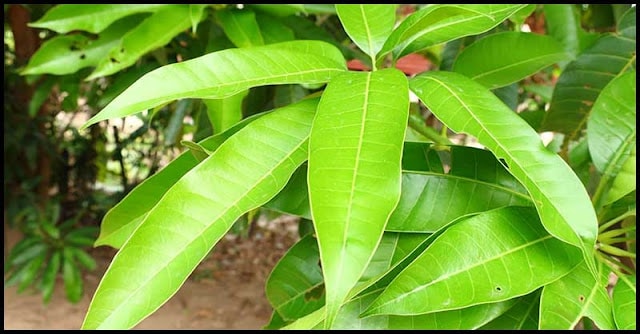Mango leaves, which we often overlook, are filled with medicinal and healing properties. They are good sources of vitamin C, B, and A as well as powerful antioxidant flavonoids and phenols. Its antioxidant and antimicrobial properties can significantly help in treating various ailments effectively. They can be boiled in water to make a decoction or can be consumed in powdered form.
Check out below on how this shiny with sharp tip leaves may help improve our health.
Helps Treat Dysentery
Mango leave may help treat bleeding dysentery. Dried leaves in a shade should be powdered and then be taken with water two to three times a day to stop dysentery.
Good For Our Gut
Prepare a concoction by putting some mango leaves in a container with warm water and close it with a lid. Leave it overnight. The next morning, filter the water and drink the concoction on an empty stomach. This would help get rid of toxins from our body and keep our stomach clean.
May Have Anti-Cancer Properties
Mango leaves contain mangiferin which may have anticancer potential, as it combats oxidative stress and fights inflammation. Test-tube studies suggest that it may have specific effects against leukemia and lung, brain, breast, cervix, and prostate cancers.
Helps With Respiratory Problems
When it comes to respiratory problems, mango leaves may have significant roles to play. It has been found to be useful in people suffering from asthma, cold, and bronchitis. Simply boil mango leaves in water with a little honey. Drinking this decoction will help treat cough effectively.
May Support Healthy Hair
Mango leaves are rich in antioxidants which may protect our hair follicles from damage. This, in turn, may help promote healthy hair growth.
Helps Treat Inflammations The Cell
The mangiferin in mango may help reduce inflammation in the body which is caused by various health problems including kidney issues and increased blood sugar levels.
Helps Treat Diabetes Symptoms
Present in the leaves is tannins called anthocyanidins, which help in treating early diabetes. In addition to this, the tender leaves also contain a compound called 3beta-taraxerol, and ethyl acetate extract which synergize with insulin to activate GLUT4 and stimulate the synthesis of glycogen. Drinking mango leaf tea may help relieve symptoms of diabetes.
How To Use Mango Leaves
Mango leaves can be eaten fresh or consume them in tea form. We can prepare our own mango leaf tea at home by boiling 10–15 fresh mango leaves in 2/3 cups (150 mL) of water. Cook till volume reduces to half. Remove from flame and filter. Drink the tea.









